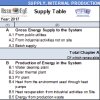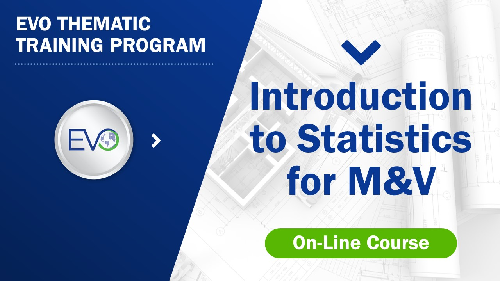In This Issue
Relaxing CV (RMSE) Requirements for Option C M&V Regressions
October 2022 - M&V Focus - Issue #10
In this issue of M&V Focus, John Avina asks if every meter's regression must have a CV(RMSE) below a certain level for the regression to be considered statistically significant. John argues that in the context of a portfolio of meters, perhaps the overall portfolio CV(RMSE) should be considered, rather than each meter's CV(RMSE).
Dolf van Hatterm presents an exciting methodology for energy accounting. The premise of this paper is that robust energy reporting is essential because it is generally recognized that durable improvements in energy efficiency require permanent energy performance monitoring. The method presented in his article is derived from the standard practices used for financial reporting and allows the presentation of results concisely, similar to financial statements.
Paul Calberg was involved in a major project in France from 2018 to 2021 that had as the main objective to look at the state of the science regarding the energy performance of buildings, highlight the best practices, and suggest tools for practitioners. Paul chairs the IPMVP sub-committee on Option D. Based on the group's recent feedback and extended discussions with colleagues in the industry, he outlines some original thoughts on M&V concepts. Based on the IPMVP fundamentals, these concepts could lead to a broader use or application of the Protocol.
Relaxing CV (RMSE) Requirements for Option C M&V Regressions

![]() By John Avina*
By John Avina*
Abstract
The Option C Measurement and Verification methods for energy service companies (ESCOs) often involve performing regressions of utility bills against weather data. We have been advised by the International Performance Measurement and Verification Protocol (IPMVP) that our regressions should yield CV(RMSE)s (coefficients of variation of the root mean square of the error), below a certain level in order for the regression to be considered statistically significant. But what happens if you have a large portfolio, such as a school district? Is it necessary that every meters’ regression have a CV(RMSE) conforming to this rule? This paper suggests that individual meters’ CV(RMSE)s do not matter. What matters is the portfolio’s overall CV(RMSE). We tested this theory on a sample of 236 meters and found that the CV(RMSE) of the portfolio can be more than 50% lower than the average CV(RMSE) of the individual meters.
De nouvelles perspectives suite au projet MPEB

![]() By Paul Calberg-Ellen *
By Paul Calberg-Ellen *
1. Introduction
Le projet de R&D « MPEB » s’est déroulé de 2018 à 2021. Il a regroupé, en France, de nombreux acteurs de la performance énergétique des bâtiments. S’y mélangeaient des bureaux d’études, des ESCO, des laboratoires de recherche, notamment. L’objet de ce projet ? Faire un point sur les connaissances existantes en matière de mesure de la performance énergétique des bâtiments, mettre en lumière les bonnes pratiques, et proposer des outils aux utilisateurs de la mesure de performance énergétique. En marge de ces objectifs, une des retombées importantes de ce projet est le recul qu’il aura permis de prendre sur certains concepts, et notamment en termes de Mesure et Vérification.
The Energy Accounting Method Developed by the Italian Association of Certified Energy Managers and the Italian Federation for the Rational Use of Energy

![]() By Dolf van Hattem *
By Dolf van Hattem *
Introduction
For all organizations, energy use has inexorably financial, logistical, and environmental consequences. The financial and logistical aspects belong in the first place to the responsibility of the energy consumer. But the environmental consequences of using energy are clearly a matter of public concern. Therefore, assuring that important energy consumers have an acceptable energy efficiency level is a public interest. This can only be achieved when reliable and meaningful energy reports are available based on a recognized accounting method.




